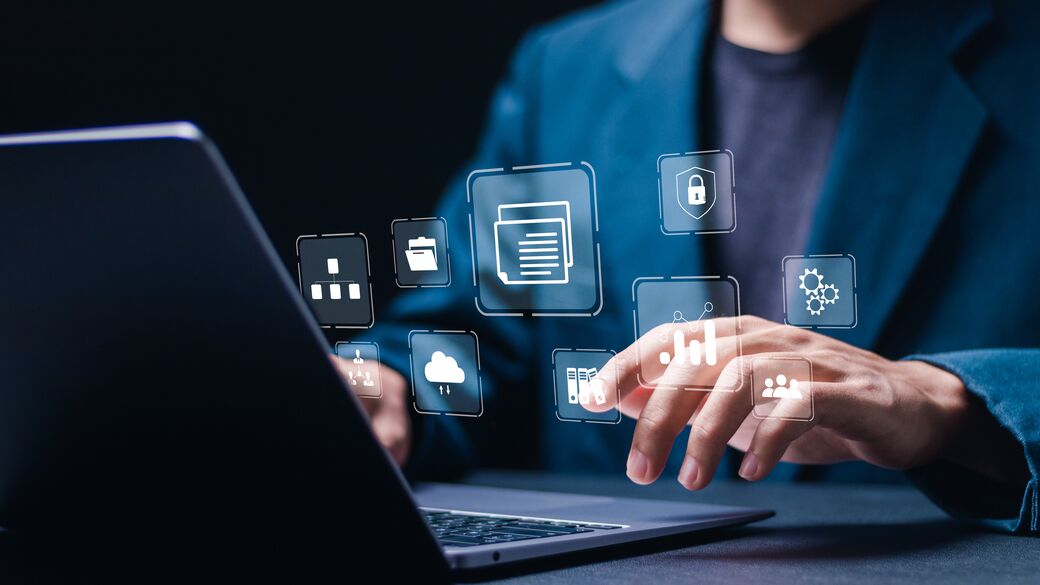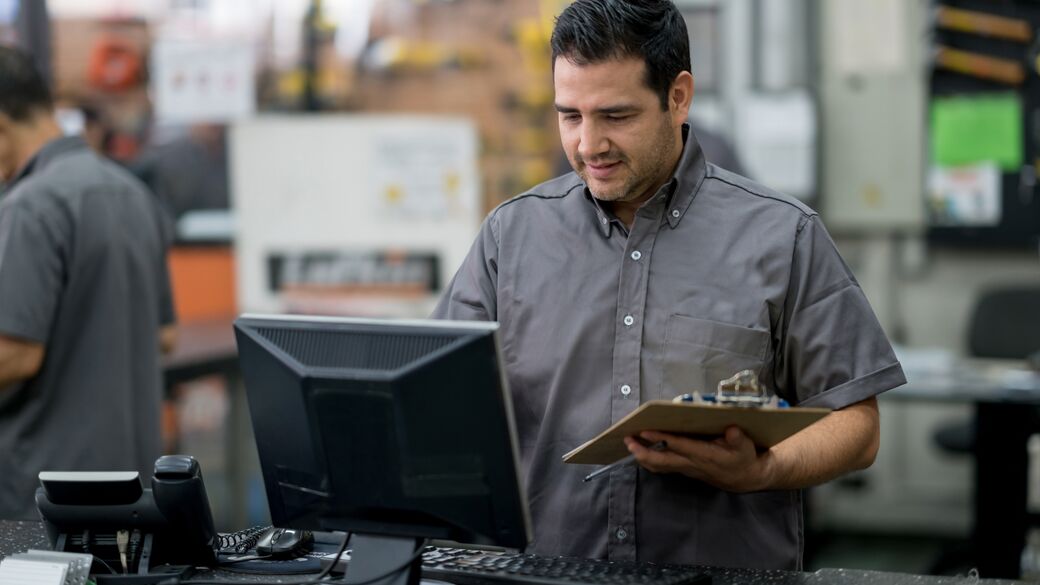Point of Sale (POS) systems are a foundational aspect of most — if not all — modern retail businesses.
A great POS system empowers a business to provide a frictionless checkout experience, complete more transactions, and better serve its customers.
Nevertheless, the value of a retail POS system extends far beyond simply accelerating the checkout process. With the right POS technology at your fingertips, you can gather critical data that assists in optimizing everything from pricing to inventory management.
With that in mind, we invite you to join us as we explore the basics of a POS system for retail businesses, including what it is, how it works, the components, and the value it brings to your business.
What is a POS System?
A retail POS system is comprised of software and hardware that enables a retailer to capture sales data, manage inventory, evaluate business performance, and complete customer sales transactions.
Software can be either cloud-based or server-based where it’s housed at a retailer's physical location. Cloud-based software is becoming the norm for retailers because it offers better security, affordability, and convenience.
Hardware components work hand in hand with the software and are needed to complete transactions. A cash register and a card reader are a small portion of the hardware options available to conduct business.
How Does a POS System Work?
A retail POS system streamlines the sales process, ensuring a smooth, efficient, and accurate transaction, but the actual process it follows to do so may be a bit more of a foreign concept.
With that said, we’ll break it down by examining the hardware and software involved in the transaction process:
POS Hardware
Common POS hardware elements include:
- Cash Registers: The traditional face of retail POS systems
- Barcode Scanners/Mobile Devices: Devices that expedite checkout and automatically update inventory levels
- Receipt Printers: Provide customers with a physical record of their transaction
- Touchscreen Displays: Serve as the interface for POS software
- Card Readers: Essential for processing credit/debit card payments
Modern card readers can also process digital and touchless payments, such as those made through near-field communication (NFC) capable cards, smartphones, and smartwatches.
POS Software
Having the proper POS hardware in place is critical to your operations, but your hardware is only as good as the software that powers it. Modern POS software accomplishes all of the following:
- Process Transactions: Calculates total costs, processes payments, and issues receipts
- Track Sales and Inventory: Updates inventory in real-time.
- Manage Customer Information: Helps to build customer database and enhances customer service
- Generate Reports: Provides insights into sales trends, inventory levels, and consumer preferences
The best retail POS software efficiently gathers a wealth of information from every transaction, which, cumulatively, helps you better understand what items are most popular among your customers. The data captured enables you to make informed business decisions and forecast demand so that you stock the products your customers want.
How Can a POS System Affect Your Business?
Implementing the right retail POS system can be a game changer for your business. Using one can immediately elevate the customer experience by transforming the checkout process into a personalized, efficient, and enjoyable journey.
Specifically, a modern POS solution can revolutionize your retail operations in the following ways:
Increased Employee Productivity
Customers are demanding faster and better service. With the right mobile tools, your staff can be more effective and provide a better customer experience. You can expect greater success if staff can take the POS to your customers wherever they shop, whether in the aisles or an outdoor sales area, your staff can complete more sales transactions, boosting your profits and driving customer loyalty. Staff can also easily access customer data and assist with real-time product and inventory information at their fingertips to personalize the customer shopping experience, making each customer interaction more efficient and effective. Mobile tools empower your staff to service your customers wherever they may be.
Actionable Data, Reporting and Analytics
Having the chance to take a glimpse into the future and reveal the secrets of your retail business may seem like a pie-in-the-sky prospect, but that is precisely what a POS system can provide in the modern retail world.
Your POS system helps you figure out when your store becomes a shopper’s paradise, allowing you to plan your staff schedules and stock levels just right. It helps you stay one step ahead of consumer trends, knowing which items are most likely to fly off the shelves and which will gather dust.
The benefits don’t stop there, though; your POS system can be a notable asset for special pricing incentives.
It will track purchase history and what your customers love. With that valuable data at your fingertips, you can proceed to offer promotions and deals that make your customers feel like you know just what they want, driving more sales and more revenue as a result.
Operating efficiently requires accurate, up-to-the-minute information about everything concerning your business. Your retail POS system should collect precise data about your business in real-time and in turn, will generate reports to help you measure your business performance. It’s not enough to have an abundance of information. You need clear, reliable, and timely reports to make important business decisions.
Reports generated from your retail POS should provide actionable information at the right time about your customers, inventory, suppliers, and more. With these reports in hand, you’ll gain valuable insight into the health of your business so you can be confident in making both strategic and tactical decisions to improve your business results and advance your business.
Create An Exceptional Customer Experience
The impact of a POS system on the customer experience cannot be overstated.
By speeding up transactions, a POS system reduces wait times, a critical factor in improving customer satisfaction by providing a smoother shopping experience, and that’s on top of the system’s ability to reduce errors.
Furthermore, by accessing a customer’s purchase history, your staff can make tailored recommendations, inform customers about relevant promotions, and provide a more personal touch to the shopping experience.
That personalization of customer service, along with customer loyalty programs, can lead to increased loyalty and repeat business, both of which are key to your long-term growth.
Flexible Integrations
Perhaps the most significant advantage of modern POS systems is their ability to integrate with various tools and platforms.
These integrations streamline financial management, ensuring that sales data directly feeds into your accounting system for accurate and up-to-date financial reporting.
Customer relationship management (CRM) integration, in particular, can enhance customer engagement strategies, and the integration of your POS system with your e-commerce platform will ensure a seamless omnichannel experience for customers, allowing them to shop and interact with your brand both online and in-person with ease.
When all of your software is communicating, you gain a holistic view of your operations through which you can pinpoint processes and workflows that may be holding you back and go on to optimize them.
The Future of a POS System
The future of retail POS systems is exciting and ever-evolving. Cloud-based systems have already spread like wildfire and now make up a large chunk of the POS ecosystem. The next big leap forward is the integration of artificial intelligence and machine learning tools.
Together, these tools will help you collect and analyze more data about your business and your customers.
Staying up-to-date on these developments means it is vital that you have a scalable, cloud-based POS software solution that can adapt to emerging changes. Leading solutions grow with your business and give you an edge over retailers who cling to outdated tech.
Get Advice on POS Systems
Selecting the right retail POS system for your business can be a daunting task. It’s important to consider factors like the size of your business, the nature of your products, and the specific features you need.
The best way to cut through the noise is to consult a POS system provider and take advantage of their expertise.
You can learn more about how a retail POS system can support the long-term growth of your business by connecting with Epicor.
Our versatile platforms can adapt to the needs of your business and help you create a more seamless customer experience.
Contact us today to get started.








